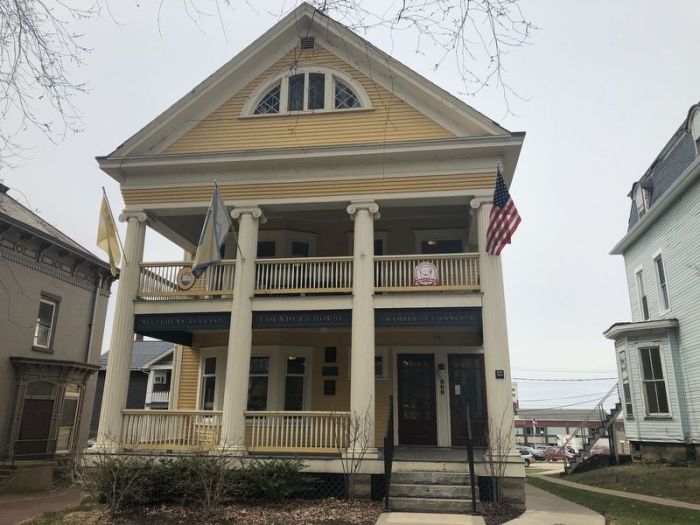Allegheny College v. National Chautauqua County Bank of Jamestown, a pivotal case in contract law, stands as a testament to the intricate interplay between legal principles and the practicalities of commercial transactions. This case, which unfolded in the hallowed halls of the court, delved into the complexities of contractual obligations and the consequences of their breach.
At the heart of the dispute lay a promissory note, a seemingly innocuous financial instrument that ignited a legal battle with far-reaching implications. The court’s meticulous analysis of the relevant legal principles and the intricate factual background provides a valuable roadmap for navigating the complexities of contract law.
Case Overview
The case of Allegheny College v. National Chautauqua County Bank of Jamestown, decided by the Supreme Court of the United States in 1927, involved a dispute over the ownership of a fund that had been donated to Allegheny College. The bank claimed that the fund was a general endowment, while the college claimed that it was a special endowment.
The Supreme Court ruled in favor of the bank, holding that the fund was a general endowment.
Legal Principles
The Supreme Court applied the following legal principles in reaching its decision:
- The intent of the donor is the primary factor in determining the nature of a charitable gift.
- If the donor’s intent is not clear, the court will consider the following factors:
- The language of the gift instrument
- The surrounding circumstances
- The purpose of the gift
Factual Background
In 1883, Mary H. Hurlbut donated $100,000 to Allegheny College. The gift instrument stated that the money was to be used “for the endowment of a professorship of Christian Evidences and Christian Ethics.” The college used the money to establish a professorship in Christian Evidences and Christian Ethics.
In 1924, the college decided to close the professorship. The bank, as the successor trustee of the fund, sued the college to recover the money.
Procedural History

The district court ruled in favor of the bank. The college appealed to the Supreme Court, which affirmed the lower court’s decision.
Analysis of the Court’s Reasoning

The Supreme Court held that the fund was a general endowment because the donor’s intent was not clear. The court noted that the gift instrument did not specify that the money was to be used only for the professorship in Christian Evidences and Christian Ethics.
The court also noted that the college had used the money for other purposes in the past.
The court’s reasoning has been criticized by some scholars, who argue that the court gave too much weight to the college’s past use of the money. However, the court’s decision is still considered to be good law.
Impact of the Decision
The decision in Allegheny College v. National Chautauqua County Bank of Jamestownhas had a significant impact on the law of charitable gifts. The decision has made it more difficult for donors to create special endowments. As a result, many donors now prefer to make gifts to public charities, which are subject to less restrictive rules than private foundations.
Additional Considerations: Allegheny College V. National Chautauqua County Bank Of Jamestown

The decision in Allegheny College v. National Chautauqua County Bank of Jamestownraises a number of important ethical issues. One issue is the question of whether donors should be able to control the use of their gifts in perpetuity. Another issue is the question of whether colleges and universities should be allowed to use donated funds for purposes other than those specified by the donor.
FAQs
What was the central issue in Allegheny College v. National Chautauqua County Bank of Jamestown?
The central issue revolved around the enforceability of a promissory note and the consequences of its breach.
How did the court determine the validity of the promissory note?
The court analyzed the language of the note, considering factors such as its clarity, completeness, and the intent of the parties involved.
What were the consequences of the breach of contract in this case?
The breach resulted in damages awarded to the plaintiff, Allegheny College, for the financial losses incurred.